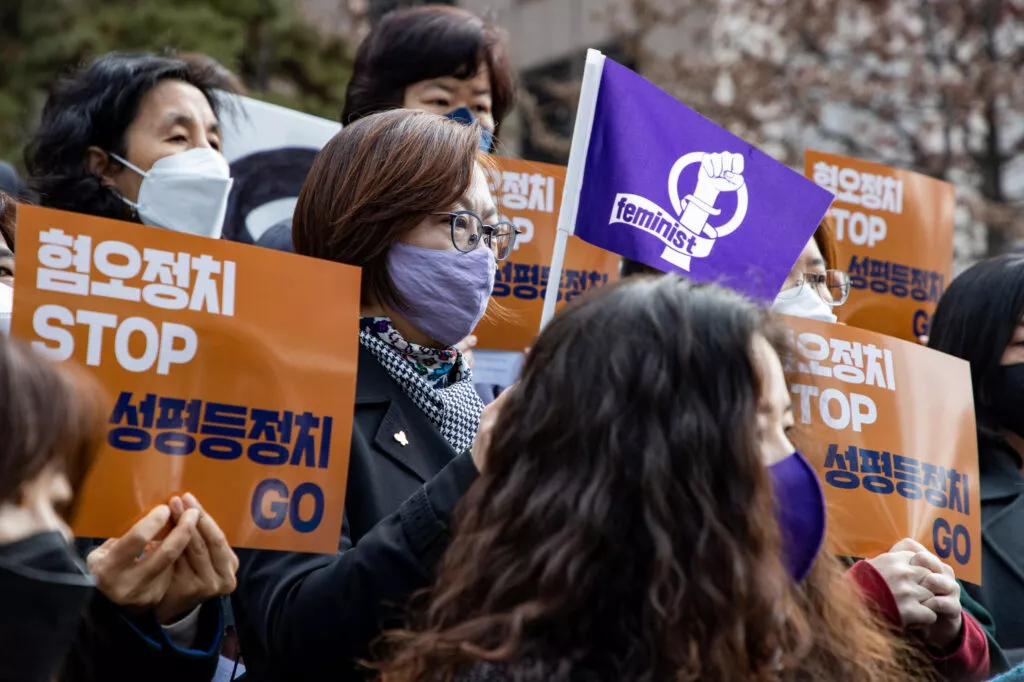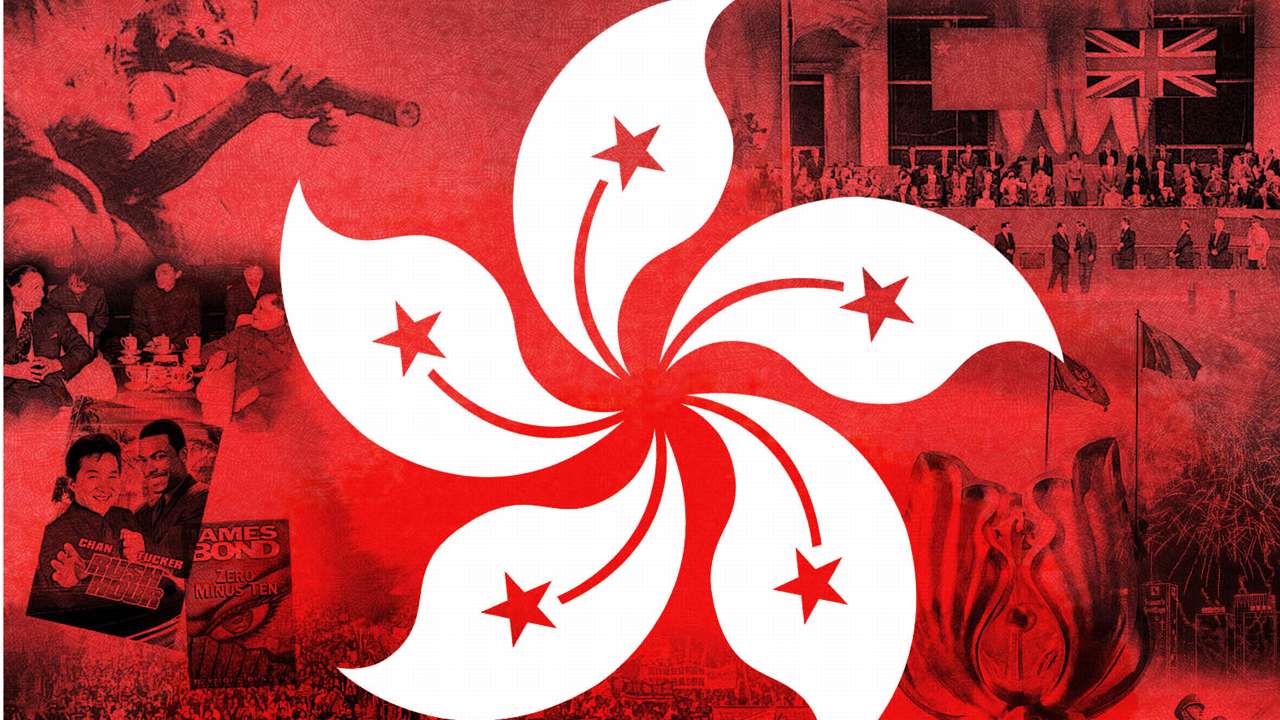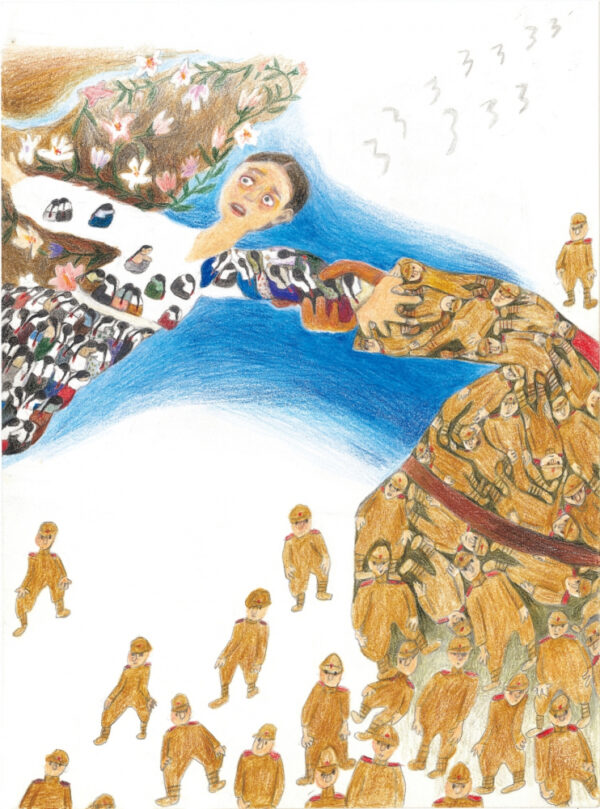Hate has become the norm of political emotions among young South Koreans, becoming a popular coping strategy against the harsh socio-economic realities many lived in. Such hate, for many young Korean men, is geared toward social minorities, specifically women. South Korea is in the middle of an increasing political divide in its population along the lines of gender. Such hate serves both as an instigator for, and a consequence of, this growing political divide, and has increasingly become a political force wielded by the Korean alt-right. However, underneath the maelstrom of an increasingly chaotic and polarizing “gender war”, Korean misogyny is, at its core, a misguided response to Korea’s neoliberal crisis and its product of a survivalist society.
Gender inequality is nothing new in Korea, where patriarchy is the organizational principle of its society. Nevertheless, this divide is further intensified among the youth. In the 2022 presidential election, 58.7% of the male voters under 35 were in the camp of President Yoon Soek-Yoel, a president who has proclaimed there is no “structural gender discrimination” in the country. Meanwhile, only 33.8% of women voted for this president.[1] Thus, it is clear that Korean politics is becoming increasingly divided and polarized based upon gender.
A strong example of gender inequality and misogyny is the ongoing deepfake crisis. The image-generative AI technology “deepfake” has produced and circulated explicit content by overlaying persons’ faces onto the material without consent. Such content is often popularized . Such explicit deepfake content, often popularized among anonymous online spaces, has become a significant form of digital sex offences, primarily targeting women and minors, who range from public figures, celebrities, and even people they knew in their life.[2] Across South Korea, more than 500 schools and universities have been involved in deepfake crimes.[3] In September 2004, the Korean government passed a law redressing the deepfake crisis with stricter regulations and punishments . However, this law is more or less a band-aid move by the government, especially as President Yoon had previously the gender equality ministry, which would have been more well-equipped to address the rising tide of gender-based violence such as the deepfake crisis. This crisis reflects the worsening gender landscape in South Korea.
Amidst the rising tide of gender polarization and misogyny, Korean women have become increasingly involved in political action and organization. Two months after the passage of the deepfake bill, the all-women Dongguk University protest has come to the forefront of Korean gender issues. Opposing a plan to admit male students, female students cried out, “We’d rather perish than open the doors,” resisting the school’s decision to open admissions to male students.[4] Women’s universities have been seen as a landmark of gender equality in Korea, ensuring education opportunities for women within the patriarchal society. For these female students, the school’s decision undermines their rights and hopes to survive in a country where systemic discrimination runs rampant. Overall, women have come increasingly under attack in South Korea, pushing Korean women towards political activism and organization.
In the meantime, young Korean men also perceive themselves as victims of the social structure.” This victim narrative is closely tied to far-right political movements, ultimately seeking to mobilize to protect their precarious social privileges. The online platform Ilbe is one of the major production houses for this narrative. Ilbe was formed in 2010, originally a digital storehouse for another internet forum, DC Inside.[5] Ilbe eventually became a humour site and gained popularity among the far-right. Ilbe community is founded upon the exploitative use of technology (e.g. Doxing and trolling), empathy from the shared sense of loss as being the “losers” in the accelerated competition of the society, and lastly, the populist reappropriation of the idea of freedom as including the “freedom of hate”.[6] What makes Ilbe’s “loser culture” particularly attractive is its ability to make far-right political rhetoric humorous and accessible to politically inexperienced Korean men. The depoliticized disguise of memes delivered a resonant narrative, transforming male failures to a moral struggle. Men are more than the losers; they are those who sacrifice for the country by having their privileges stripped away for the minorities, ignoring the fact that those privileges are first derived from the oppression against the minorities.[7]
The hateful narratives espoused by Ilbe and far-right groups primarily draw upon two social issues. The first is compulsory military conscription for all male citizens,[8] and the second being the tightening neoliberal economy. Young Korean men are caught in a double demand from the nation and the market. Military service is no longer a symbol of a masculine ideal revered by the state but an obstacle to a better performance in the market. Thus, Ilbe gave rise to the rhetoric of reverse sexism, taking women as the scapegoats for national issues ranging from economic stagnation, unaffordable housing, and even depopulation.[9] For the Ilbe users, gender equality for women is inequality for men. Feminists striving for women’s rights are even marked as social outcasts disparaging the national interests. The feeling of hatred is intertwined with fears and anxieties, congealing into a complex of insecurity under Korean neoliberalism, where the privileges once promised to men are now precarious and also partial.
However, gender-driven hatred fails to properly diagnose the underlying causes for male dissatisfaction. The supposed privileges granted to women does not improve women’s quality of life. Instead, women continue to face pressures from both the state and the market to submit to traditional feminine roles while being available for market exploitation. The lucrative profit of the economic miracle has not been transferred from men to women, but has been concentrated in the hands of a few at the top social echelon, where market-driven neoliberal reforms allowed the state incorporated the neoliberal ideology, forging a new alliance with the chaebols who shared similar interests,[10] profiting lucratively from hate. Gendered hate turns the finger away from the structure of exploitation towards the exploited. Hate, as a response to the neoliberal crisis, is still conditioned to its logic. It supports the notion of “survival for the fittest” with limited resources as the force of nature, wherein women and other social minorities are rendered antagonistic in the eyes of dissatisfied men. However, the core of the unfair distribution of resources is neglected. Hate is strategically cultivated and harnessed by the conservative state to pre-empt the possibility of social solidarity. The anti-establishment premise of digital populist politics is now part of the establishment, plunging the country into gender-based hatred while preventing effective solidarity to address systemic economic and social inequalities .
As I write this, Korea is undergoing dramatic political change. The national assembly had voted for the impeachment of President Yoon, who enacted martial law for the first time since 1987, when Korea became a parliamentary democracy (Mao 2024). This time of uncertainty may also be a time of change, as we have witnessed how Korean people, regardless of their differences, come to the streets to defend their democracy. Perhaps a new collective emotion can transcend normative hate and envision a new solidarity.
Qiuzi Mei is a third-year undergraduate student who specializes in socio-cultural anthropology. Meanwhile, she is also pursuing a double minor in Contemporary Asian Studies and Literature and Critical Theory. Her research interests are on migration, secularism, affect and memory.
Footnotes
- Tereza Capelos, Ellen Nield, and Mikko Salmela, “Narratives of Success and Failure in Ressentiment: Assuming Victimhood and Transmuting Frustration among Young Korean Men,” Social Sciences (Basel) 12, no. 5 (2023): 1, https://doi.org/10.3390/socsci12050259. Raphael Rashid.“‘Devastated’: Gender Equality Hopes on Hold as ‘Anti-Feminist’ Voted South Korea’s President,” The Guardian, March 11, 2022, https://www.theguardian.com/world/2022/mar/11/south-korea-gender-equality-anti-feminist-president-yoon-suk-yeol.
Georgia Smith, and Joseph Brake, “South Korea Confronts a Deepfake Crisis,” East Asia Forum, November 18, 2024, https://eastasiaforum.org/2024/11/19/south-korea-confronts-a-deepfake-crisis/.
- Jean Mackenzie, and Leehyun Choi, “South Korea: The Deepfake Crisis Engulfing Hundreds of Schools,” BBC News, September 3, 2024, https://www.bbc.com/news/articles/cpdlpj9zn9go.
- Rashid, Raphael, “‘We’d Rather Perish’: Protests Roil South Korean Women’s University over Plan to Admit Male Students,” The Guardian, November 26, 2024, https://www.theguardian.com/world/2024/nov/27/south-korea-dongduk-womens-university-protests-male-students.
- Hojeong Lee, “Relentless Villains or Fervent Netizens?: The Alt-Right Community in Korea, Ilbe,” Internet Histories (2017) 5, no. 3–4 (2021): 273, https://doi.org/10.1080/24701475.2021.1953756.
Lee, “Relentless Villains or Ferevent Netizens?,” 275.
- Capelos, Nield And Salmela, “Narratives of Success and Failure in Ressentiment,” 4. Lee, “Relentless Villains or Ferevent Netizens?,” 275.
Jihyun Choo, “The Spread of Feminism and the Silence of Gendered Militarism in the Neoliberal Era: Controversy Over Military Conscription Among Members of the Young Generation in South Korea,” Journal of Asian Sociology 49, no. 4 (2020): 480, https://doi.org/10.21588/dns.2020.49.4.005.
- Rhys Moon, “Feminism Is the New F-Word – Populism & Patriarchy among Young South Korean Men,” Harvard Political Review, January 15, 2023, https://harvardpolitics.com/feminism-is-the-new-f-word-populism-patriarchy-among-young-south-korean-men/.
Hee Jung Choi and Nora Hui-Jung Kim, “Of Soldiers and Citizens: Shallow Marketisation, Military Service and Citizenship in Neo-Liberal South Korea,” Journal of Contemporary Asia 47, no. 4 (2017): 527 – 530, https://doi.org/10.1080/00472336.2016.1269264.
Bibliography
Capelos, Tereza, Ellen Nield, and Mikko Salmela. “Narratives of Success and Failure in Ressentiment: Assuming Victimhood and Transmuting Frustration among Young Korean Men.” Social Sciences (Basel) 12, no. 5 (2023): 259-. https://doi.org/10.3390/socsci12050259.
Choi, Hee Jung, and Nora Hui-Jung Kim. “Of Soldiers and Citizens: Shallow Marketisation, Military Service and Citizenship in Neo-Liberal South Korea.” Journal of Contemporary Asia 47, no. 4 (2017): 515–34. https://doi.org/10.1080/00472336.2016.1269264.
Choo, Jihyun. “The Spread of Feminism and the Silence of Gendered Militarism in the Neoliberal Era: Controversy Over Military Conscription Among Members of the Young Generation in South Korea.” Journal of Asian Sociology 49, no. 4 (2020): 477–500. https://doi.org/10.21588/dns.2020.49.4.005.
Lee, Hojeong. “Relentless Villains or Fervent Netizens?: The Alt-Right Community in Korea, Ilbe.” Internet Histories (2017) 5, no. 3–4 (2021): 268–86. https://doi.org/10.1080/24701475.2021.1953756.
Mackenzie, Jean, and Leehyun Choi. 2024. “South Korea: The Deepfake Crisis Engulfing Hundreds of Schools.” BBC News, September 3, 2024. https://www.bbc.com/news/articles/cpdlpj9zn9go.
Mao, Frances. 2024. “Why Has South Korea’s President Suddenly Declared Martial Law?” BBC, December 3, 2024. https://www.bbc.com/news/articles/c0lgw1pw5zpo.
Moon, Rhys. 2023. “Feminism Is the New F-Word – Populism & Patriarchy among Young South Korean Men.” Harvard Political Review. January 15, 2023. https://harvardpolitics.com/feminism-is-the-new-f-word-populism-patriarchy-among-young-south-korean-men/.
Rashid, Raphael. “‘We’d Rather Perish’: Protests Roil South Korean Women’s University over Plan to Admit Male Students.” The Guardian. The Guardian. November 26, 2024. https://www.theguardian.com/world/2024/nov/27/south-korea-dongduk-womens-university-protests-male-students.
Rashid, Raphael.“‘Devastated’: Gender Equality Hopes on Hold as ‘Anti-Feminist’ Voted South Korea’s President.” The Guardian, March 11, 2022. https://www.theguardian.com/world/2022/mar/11/south-korea-gender-equality-anti-feminist-president-yoon-suk-yeol.
Smith, Georgia, and Joseph Brake. “South Korea Confronts a Deepfake Crisis.” East Asia Forum, November 18, 2024. https://eastasiaforum.org/2024/11/19/south-korea-confronts-a-deepfake-crisis/.








